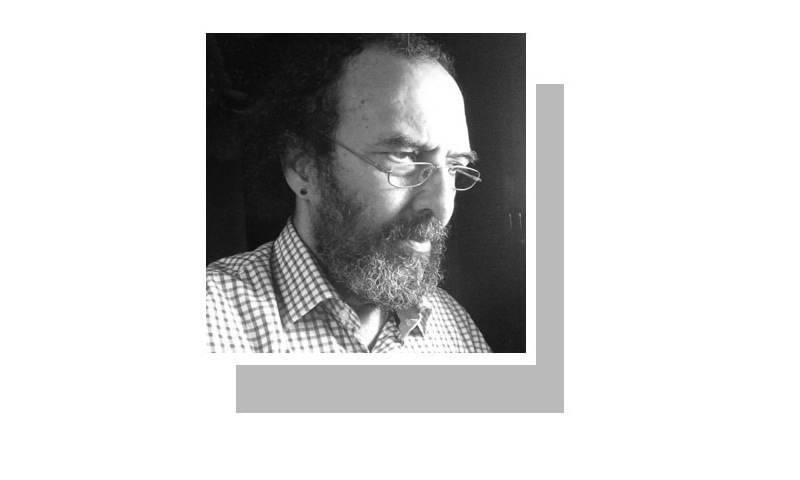To be Babar’s truer offspring

WATCH the video of Donald Trump’s visit to Agra and freeze the frame where the publicly anti-Muslim chief minister of Uttar Pradesh is seen presenting the US president with a framed picture of the Taj Mahal. Yogi Adityanath, whose open targeting of Indian Muslims has spearheaded Hindutva’s political march was presenting a celebrated Mughal relic to a fellow racial bigot. Hatred can be an opportunistic tool, of course, but Adityanath had put on a needless charade for a visitor who in any case didn’t care.
Cut to a recent online summit between Indian Prime Minister Narendra Modi and Uzbek President Shavkat Mirziyoyev. India and Uzbekistan shared “civilisation and historic ties”, a readout of the talks said last week. It’s true that Uzbekistan, like Afghanistan, Iran and Turkey and other Central Asian countries, has had extremely close cultural links with India. What is difficult to figure out is the reason for a sectarian prime minister who doesn’t wish his own Indian Muslims on Eid and changes the name of Christmas Day into Good Governance Day to highlight a historical and civilisational link he appears to have grown up loathing.
Modi has risen to power by hurling anti-Babar invectives at Indian Muslims.
After all, Modi has risen to power by hurling anti-Babar invectives at Indian Muslims, encouraging his supporters to mock them as Babar’s offspring. And Babar is a sweetheart romantic, a poet-prince revered in Uzbekistan, ranking second only to Amir Taimur.
That’s not the end of Modi’s overtures in Uzbekistan. Had the Indian prime minister been merely recalling an evocative civilisational link it would not be so puzzling. In diplomacy such stock phrases are used for effect. President K.R. Narayanan welcomed president Pervez Musharraf as a son of Delhi. These things happen.
Modi’s earlier Uzbek visit in 2015 saw him performing a bigger cultural somersault of sorts. He had presented his host an especially commissioned reproduction of Khamsa-i-Khusrau composed in Persian by the great 13th-century Sufi poet Amir Khusrau. One would associate such high-minded gestures from, say, Atal Behari Vajpayee or Manmohan Singh. But, Modi? He opened his gambit as prime minister by ordering the distribution of Gita, the holy book to Hindus, to foreign dignitaries. (The Pope would be wondering if he had sinned by not presenting copies of the Bible to his visitors.)
Khusrau’s quintet was inspired by an earlier work by Nizami Ganjavi, a much-loved Persian poet and philosopher, who lived a century before Khusrau. Both versions describe albeit with slightly differing plots — among other stories — the tragic romance of Shirin and Farhad. If Modi liked the story of Shirin and Farhad he should be commended for this pleasantly eclectic side to him. There’s no evidence of this being the case.
Modi’s gift to his Uzbek host was spurred also by the fact that Khusrau was born in Uttar Pradesh and his father hailed from Uzbekistan. In which case, isn’t this also the story of countless Indian Muslims (and those of other faiths) who were born in India but whose forebears came from elsewhere?
For an Indian leader who refuses to wear a cap lest it links him with Muslims, Modi was at his charming best a couple of years ago as guest of Indonesian President Joko Widodo. In Jakarta, where Indian leaders have relished their evenings with Muslim actors performing an amazing ballet from stories from the Ramayana, the prime minister drove off instead to visit Indonesia’s grand Istiqlal Mosque, the largest in Southeast Asia. Has he been to a mosque in India with such enthusiasm, other than the Babri Masjid he helped destroy?
“Glad to have visited the Istiqlal Mosque, one of the largest mosques in the world,” Modi said in a tweet at the time. The foreign ministry spokesperson added a Ramazan greeting to boot. “Ramadan Karim! Indonesian President @jokowi accompanied PM @narendramodi during a visit to Istiqlal Mosque, the national mosque of Indonesia and the largest in southeast Asia, in the holy month of Ramadan.”
Khusrau’s Khamsa is a part of the manuscripts collection of the National Museum in Delhi. Years ago, a colleague from Aligarh was curating the mediaeval history section at the museum. His hands shook with sheer nervousness of handling another priceless Khusrau manuscript he showed me but didn’t allow to be touched. The poet composed this masnavi ‘Ashiqa’ and it should interest advocates of Hindutva since it involves the tragic love of Deval Rani and Khizr Khan, a Hindu princess and her Muslim suitor.
In its denouement the story is manifold more painful than the popular lore of doomed lovers, but it is also a complicated narrative. Sultan Alauddin Khilji was unhappy with his wife Mahru and falls in love with a Hindu princess Kamla Devi, and marries her. Alauddin’s eldest son Khizr Khan was born to Mahru. Kamla Devi had a daughter from a Hindu raja from a previous marriage. Queen Kamla has her daughter back. Then Khizr Khan falls in love with the daughter of his stepmother, a very complicated situation.
For a country where stories of tragic love abound in folklore and real life, India should have been nicely inoculated to deal with the outbreak of the dubious war on what Modi’s ideological factory calls ‘love jihad’. It has little to do with any Muslim man marrying a Hindu woman with the view to converting her to his faith. Only the other day, police stopped a couple from getting married in Uttar Pradesh in a case where the Muslim boy was getting converted to the woman’s Hindu faith, not the other way around.
Some say the genesis of the idea lies in Nazi Germany where ordinary Germans were forcibly segregated from Jews. Is there a moral of the story for Indian Muslims? Is it better to be a truer offspring of Babar in Uzbekistan than a fake one in India?
The writer is Dawn’s correspondent in Delhi.
Published in Dawn, December 15th, 2020













































